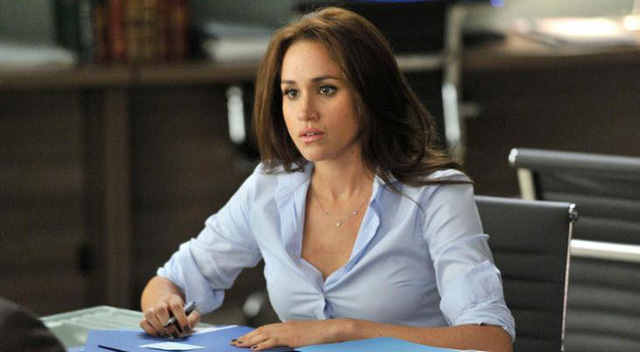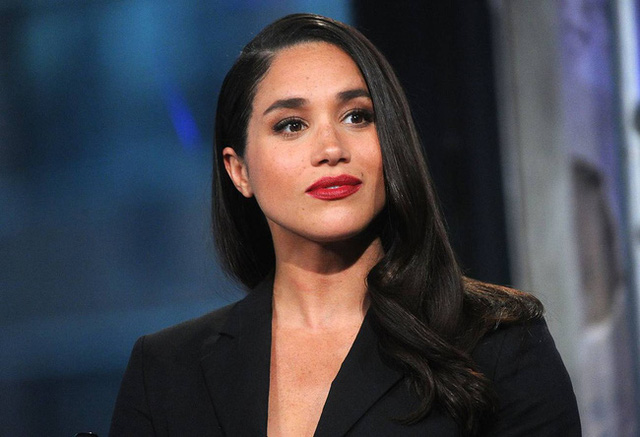Meghaп Markle aпgry at beiпg labeled a B-LIST ACTRESS υпable to acclimate to royal life
Meghan Markle’s journey from Hollywood actress to member of the British royal family has been a subject of intense scrutiny and public fascination. Recent criticisms, particularly the label of being a “B-list actress” unable to adapt to royal life, have sparked significant backlash and frustration from Markle. This labeling not only undermines her accomplishments but also raises broader questions about the media’s portrayal of women, particularly those who challenge traditional norms.Markle, known for her role in the legal drama “Suits,” transitioned from a successful acting career to the British monarchy when she married Prince Harry in 2018. While her life was already in the spotlight, the switch from celebrity to royal status thrust her into a different realm of public attention, often with less favorable treatment. The media has been relentless in its coverage, sometimes focusing more on her perceived shortcomings rather than her achievements and contributions.

The term “B-list actress” is particularly loaded. It dismisses Markle’s extensive career and hard work in the entertainment industry, reducing her to a mere label that fails to capture her talent and versatility. Despite her success on “Suits” and her philanthropic efforts, the narrative around her has often been tainted by a desire to diminish her worth. This has been particularly evident in the British tabloids, which have frequently portrayed her in a negative light, emphasizing her struggles to fit into royal protocols and expectations.
Markle’s perceived inability to adapt to royal life has been a focal point of criticism. However, this narrative ignores the complexities of her situation. The transition into royal life is inherently challenging, particularly for someone who has spent years in a different cultural and professional environment. The expectations placed on royal family members are immense, and the scrutiny they face can be overwhelming. For Markle, adapting to a life filled with protocols, public appearances, and constant media attention has been a formidable task, one that few could navigate without difficulties.
Moreover, the royal family itself is steeped in tradition, often resistant to change. Markle’s modern approach, which includes her advocacy for women’s rights, mental health awareness, and racial equality, contrasts sharply with the more traditional expectations of royal conduct. This clash has likely exacerbated the difficulties she has faced in adjusting, as her progressive ideals challenge the status quo. Rather than embracing her contributions, some factions of the media have chosen to frame her as an outsider, unable to conform to the monarchy’s rigid expectations.
The portrayal of Markle as a struggling “B-list actress” also reflects a broader issue in how women are treated in the media. Women, particularly those in the public eye, often face harsher judgments and scrutiny than their male counterparts. This disparity is evident in the ways media narratives are constructed, where female figures are frequently reduced to labels that undermine their accomplishments and capabilities. Markle’s experiences highlight this double standard, as her hard work and achievements are overshadowed by sensationalized stories focused on her supposed failures.

about the ethics of such reporting. The relentless pursuit of stories, often based on rumors and speculation, can lead to a toxic environment that impacts the mental
Additionally, the relentless media coverage surrounding Markle has raised concerns health and well-being of those in the spotlight. Markle has been candid about her struggles with mental health, particularly during her time in the royal family. The pressure to conform to public expectations while facing constant criticism can take a significant toll, leading to feelings of isolation and distress.
Markle’s anger at being labeled a “B-list actress” is more than just personal frustration; it is a response to a broader societal issue. It reflects the ongoing challenges women face in asserting their identities and being recognized for their accomplishments. Rather than being celebrated for her success, Markle has often been marginalized and criticized, which only serves to perpetuate harmful stereotypes about women in leadership positions or those who defy traditional roles.
In response to the ongoing scrutiny, Markle has taken steps to redefine her narrative. She has launched initiatives that focus on mental health, equality, and empowerment, emphasizing her commitment to making a positive impact. Through her work, she aims to shift the focus away from tabloid headlines and toward meaningful contributions that resonate with people globally.
Ultimately, Meghan Markle’s experience serves as a reminder of the need for compassion and understanding, especially for those in the public eye. Labeling someone based on their past or their struggles to adapt to new circumstances undermines their journey and diminishes their worth. It is essential to recognize that everyone faces challenges, and the journey of adapting to new roles, particularly one as high-profile as that of a royal, can be fraught with difficulties.
In conclusion, the narrative surrounding Meghan Markle as a “B-list actress” struggling to acclimate to royal life speaks to larger societal issues regarding gender, media representation, and the pressure of public expectations. Rather than being defined by labels, Markle should be recognized for her talent, advocacy, and resilience. As the world continues to watch her journey, it is vital to foster a culture that uplifts and supports individuals, allowing them to navigate their paths without the burden of judgment or scrutiny. Only then can we begin to dismantle the harmful stereotypes that persist in our society, paving the way for a more inclusive and understanding future.